Insights

Lessons from the IOOF Case
A recent decision of the Federal Court in Australian Prudential Regulation Authority v Kelaher [2019] FCA 1521 provides some guidance to regulators, trustees of superannuation funds and their advisers on issues related to administering superannuation funds and conducting litigation, explains Noel Davis, Barrister and author of The Law of Superannuation in Australia . In this case APRA sought disqualification orders...

Much Obliged: When could a lawyer mediator be liable for breaching their obligations?
Mediation is an increasingly popular form of dispute resolution in Australia especially in last few decades. While mediators may possess a variety of skills and may come from a range backgrounds, lawyers and barristers are frequently engaged in mediations either in their capacity as legal representatives of the parties, or as mediators. In this article, Queensland barrister Polina Kinchina of Murray Gleeson Chambers...
National Cabinet plays with a newfound unity, but will it last
Prime Minister Scott Morrison and Acting Chief Medical Officer Paul Kelly emerged from the latest National Cabinet meeting on Friday the 10 th of July 2020 to announce the latest in what the nation’s leaders had agreed to. It was the first time National Cabinet convened since the new spike of Covid-19 cases in Victoria, and while the Prime Minister described the outbreak as “concerning”, he also said that Victoria had...

New-found workplace flexibility or economic disaster
After years of relative stability, Coalition Government moves against trade unions, and a recent Federal Court of Australia decision related to casual workers that is currently being appealed at the High Court, have brought conflict and uncertainty to the industrial relations landscape. An economic crunch and spiralling unemployment on the back of COVID-19 have heightened concerns among employers and employees alike....

Not enough to say no: what the changes in modern awards mean for discussing and refusing flexible work requests.
In November 2018, the Full Bench of the Fair Work Commission handed down a decision that expands on an employer’s obligations when considering an employee’s request for “family friendly” working arrangements. The decision inserted a model term into all modern awards (Flexible Work Decision). This model term does not apply to employees covered by an existing enterprise agreement (EA), although it will need to be considered...

Privacy by design
Privacy by design is a practical framework that aims to “embed” privacy into the design and architecture of information systems, business processes and networked infrastructure. It aims to ensure that privacy is considered before, at the start of, and throughout the development and implementation of initiatives, projects and products and services that involve the collection and handling of personal information. What...
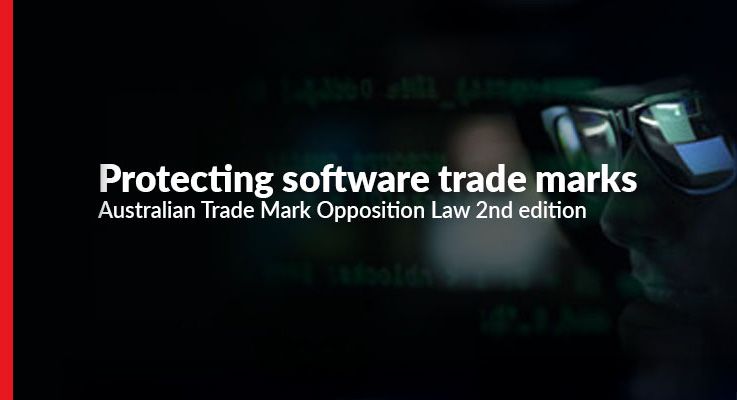
Thinking outside the box
Practitioners working in brand protection and trade mark law are very familiar with applications to remove trade mark registrations on the basis of a lack of intention to use or lack of use. Removing disused registered trade marks from the register is in the public interest, according to Andrew Sykes, author of Australian Trade Mark Opposition Law , 2 nd ed, 2019. The register should not be a graveyard of trade marks...

Remedying Wage Theft: The Evolution of the Fair Work Ombudsman’s Enforcement Approach
The last few years have seen extended public outcry over what appears to be systemic wage theft in Australia. In response to the ongoing underpayment of wages, the Fair Work Ombudsman has beefed up its enforcement priorities, with - among other things - Company Directors now significantly liable and a range of civil and criminal remedies at its disposal. Before the arrival of COVID-19, there was strong community support...

Skilful Lawyering – Success in the profession
The process of developing critical thinking is one highly regarded skill of every law student. Another less discussed but equally important skill is the ability to interpret statutes. This skill is at the core of being a lawyer as it provides a foundation in problem solving and text interpretation as it relates to the significant body of legal writing, that is, legislation. This skill is critical when a case may involve...

Social services plea for pandemic relief in October budget measures
As JobKeeper payment rates fall from 28 September, and mutual obligations return for JobSeeker recipients, social services organisations will be looking to the 6 October Budget for signs that the Government might avoid harsh austerity measures to cut its way clear of the COVID crisis. From 28 September, the JobKeeper rate will move to a two-tiered system, dropping from $1500 per fortnight across the board to $1200 for...

Superannuation savings under threat from early access plans
Australia’s superannuation system is one of the best in the world, designed to address aging demographics and reduce overall reliance on the age pension. Yet under successive Coalition Governments, it has suffered several shocks, each one weakening it, or delaying its growth. The COVID-19 pandemic has further increased its vulnerability, with current government policies seriously threatening to chip away at superannuation...
The Law of Bankruptcy Notices and Creditors’ Petitions
Q & A with Nicholas Simpson Gaining an understanding of the law of bankruptcy has become a necessity during 2020. COVID 19 has dealt many sectors and individuals unexpected risk and concerns related to bankruptcy, insolvency and creditors petitions. Decoding and anticipating the consequences of COVID related legislation and policy is a critical skill. We took the opportunity to ask Nicholas Simpson of 13 th...

Victoria’s new workplace manslaughter laws: it’s all in the messaging
Victoria’s new workplace manslaughter laws: it’s all in the messaging Dr Eric L Windholz MONASH UNIVERSITY | Employment Law Bulletin On 1 July 2020, Victoria became the fourth Australian jurisdiction to introduce workplace manslaughter laws. The laws are a fulfilment of an Andrews Labor Government election commitment and follow a sustained union campaign. The laws create no new occupational health and safety (OHS...
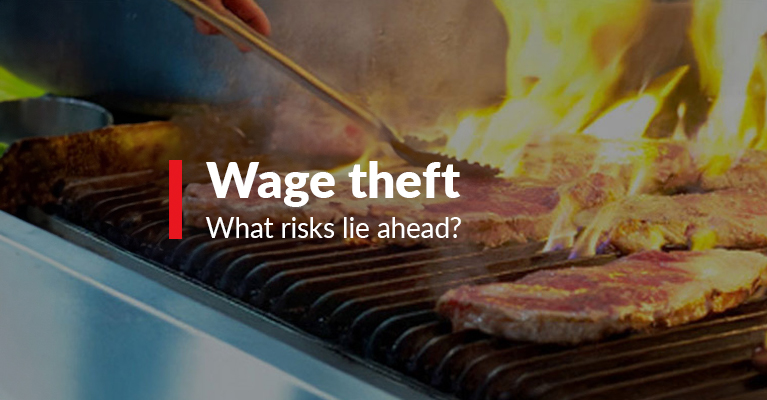
Wage theft: what risks lie ahead for businesses?
Underpayment has continued to be a very serious legal and reputational issue for business during this crisis year of changing rules and employment schemes. The Fair Work Ombudsman (FWO) has stated its intention to continue to focus on underpayments, so businesses should be auditing regularly to avoid litigation and to ensure that they have appropriate governance and systems in place. Systemic underpayments by large...

Why do we need innovation in law?
Julian Uebergang Managing Director Asia Pacific, Neotalogic There are some degrees of cynicism when another law firm issues another press release regarding the next step on their innovation pathway. The latest foray into “Blockchain”, “Artificial Intelligence”, “Design Thinking” and “Smart Contracts” are touted as game changers placing their firm at the forefront of the re-invention of the profession. The truth...

WorkPac v Rossato – the death of the ‘long-term casual’
Recently, the issue of what constitutes casual employment has become increasingly litigated. The decision of the Full Court of the Federal Court in WorkPac Pty Ltd v Skene ( Skene ) in 2018 sparked significant media attention because it challenged the then prevailing view as to what constitutes casual employment. Paul Skene, a long-term casual employee, successfully convinced the Full Court that his work arrangements...

5 Ways To Combat Cybersecurity Fatigue
Cybersecurity is a growing concern for businesses of all sizes. Hacks and data breaches are becoming more common and more complex. While no business is expected to be invincible against cyber attack, they are expected to be fully prepared and to take all practicable steps to prevent breaches from happening. The Office of the Australian Information Commissioner reported a total of 245 data breaches affecting personal...

ALRC Family Law Report: A quick guide for practitioners
With 60 recommendations made over 574 pages, the Australian Law Reform Commission (ALRC) report, Family Law for the Future: An Inquiry into the Family Law System is a long read. The much-anticipated report was tabled in Parliament on 10 April 2019. To help you find the parts of the report that will matter most to you as a family lawyer or barrister, we spoke to Professor Richard Chisholm AM, former Judge of the Family...

Caveats and PEXA: A Cautionary Tale
Caveats: the basics Caveats, which developed as a result of the Torrens title system of land ownership, act as a “freeze” on anyone dealing with the title to land that is the subject of a caveat until it has been resolved. Caveats are perhaps best described by Barwick CJ in the leading case of J & H Just (Holdings) Pty Ltd v Bank of New South Wales (1971) 125 CLR 546; BC7100480: “In simple terms, the purpose of...
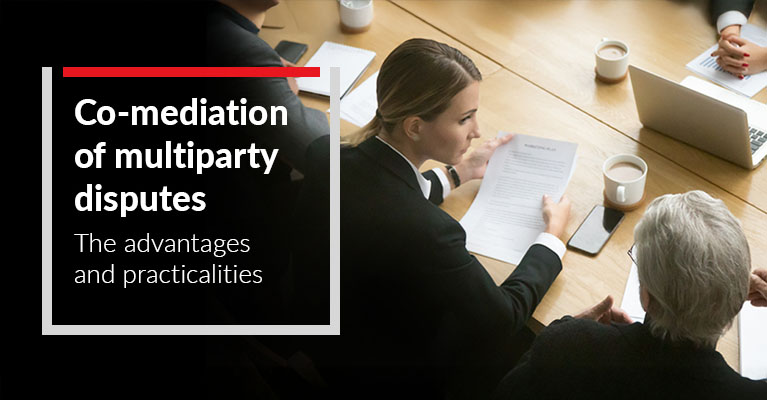
Co-Mediation of Thorny Multiparty Disputes: The Advantages and Practicalities
Mediation Introduction Mediation as a process is widely praised by judges and lawmakers for being able to resolve even the thorniest of disputes, often to the surprise of the parties involved. Federal and state courts in Australia have the power to require parties to mediate, with or without their consent, under the Civil Dispute Resolution Act 2011 (Cth). However, when there are multiple parties to a dispute the...
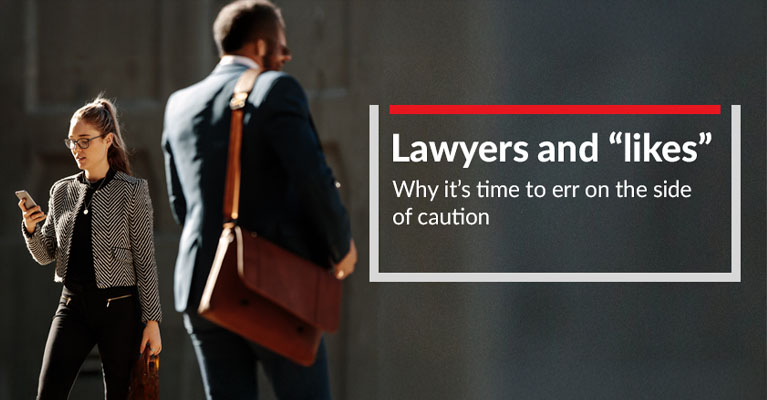
Lawyers and ‘Likes’: why it’s time to err on the side of caution
We all have opinions, but just how free are we to express these online? Digitisation and the rise of social media means anyone’s opinions, statements, actions, and comments can now disseminate widely, quickly and uncontrollably. The resulting situations, challenges and complexities are unprecedented, and can reveal inadequacies in many of our pre-internet legal frameworks. The professional obligations of barristers...
Disability Discrimination Commissioner Q&A
Dr Ben Gauntlett commenced as Disability Discrimination Commissioner in May 2019. A barrister prior to commencing his term, Ben holds undergraduate degrees in Law (Hons) and Commerce from the University of Western Australia, and was awarded the Rhodes Scholarship for Western Australia in 2003. He also holds a Master of Laws from New York University and a D.Phil. in Law from the University of Oxford, where he studied as...

Work-Life Balance in a Hyperconnected World
Feeling torn between work and all of the other things in life is a common conundrum. For the last two decades, the topic of work-life balance has been a popular one. A good work-life balance “means you have harmony between different aspects of your life, where benefits gained from each area can support and strengthen the others.” Organisations have strived to lead the way and attract the best talent with wellness...

Criminal Law and Forensic Evidence
Forensic Science in Criminal Trials: Is It a Double-Edged Sword? Forensic evidence has long been used as a weapon in criminal trials. From fingerprints to handwriting and DNA, scientific analysis is a powerful force, used to exonerate the innocent and convict the guilty. It is also now used to hunt down killers, whose crimes were committed in the decades before science developed DNA profiling, and crack cold cases....
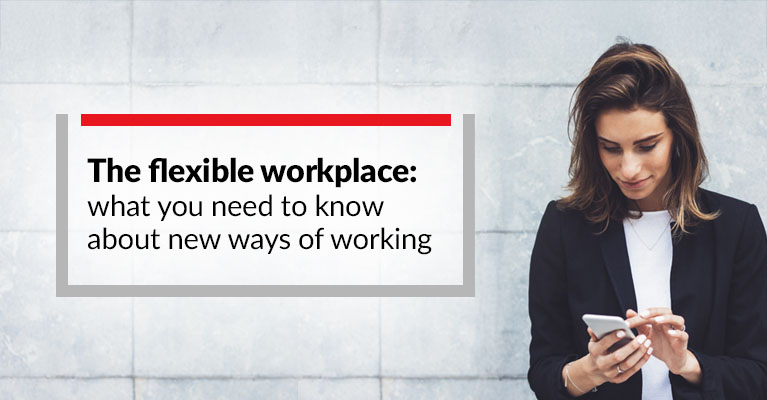
The flexible workplace: what you need to know about new ways of working
Rapid advancements in tech and broader societal changes are driving a workplace revolution. Gone are the days of a job for life and the 9 to 5 grind. Instead, we’re craving flexibility and reinvention and we’re working in ways we could have only imagined 10 or 20 years ago. Here, we take a closer look at this new era and what it means for both employers and employees. The new way of working Tech platforms and a...